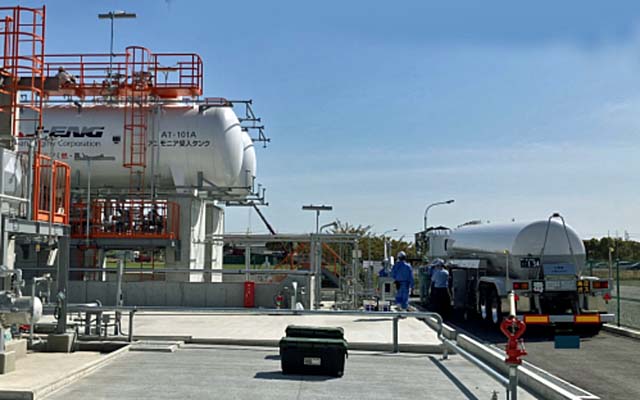Japan Engine Corporation (J-Eng), has recently completed test operations which the company says will lead to the first domestic ammonia-fuelled engine.
J-Eng, the joint venture between Mitsubishi and Kobe Diesel, has been conducting various test operations since it began what it believes to have been the first ammonia co-firing operation of a large low-speed two stroke engine. The development was carried out under Japan’s New Energy and Industrial Technology Development Organization (NEDO) Green Innovation Fund Project/ Next-generation Ship Development.
Through the tests, J-Eng achieved stable operation of the engine at a high ammonia co-firing rate and can confirm that the generation of N2O, which has high global warming potential, can be suppressed to a very low level through combustion controls, thereby establishing a technology that can significantly contribute to reducing GHG emissions.
The company has additionally completed verification of peripheral equipment such as the ammonia fuel supply, including the functionality and safety, maintainability of each piece of equipment, and the fuel switching sequence between HFO and ammonia, having achieved good results with the safe handling of toxic ammonia.
Currently, manufacturing of the first ammonia-fuelled full-scale engine, which will be installed on an actual ship, is progressing, with trial operation scheduled to begin in April 2025, completing in the following September.
At the same time, ammonia supply equipment has been installed at the J-Eng factory, and approval for the equipment has been obtained from the authorities. Ammonia filling and ammonia circulation operation have now been completed, and preparations for the peripheral equipment for operation of an ammonia-fuelled full-scale engine are progressing smoothly.
In order to accommodate a wide variety of ammonia-fuelled ships, following the first engine unit (with cylinder bore 50cm) J-Eng is developing an ammonia-fuelled engine with a cylinder bore of 60cm alongside several other promising projects. As a first mover of next-generation engines, J-Eng expects to contribute to the goal of carbon neutrality by 2050 through the early launch and expansion of these engines in the market.
Image: Ammonia fuel storage at the J-Eng plant (source: J-Eng)



